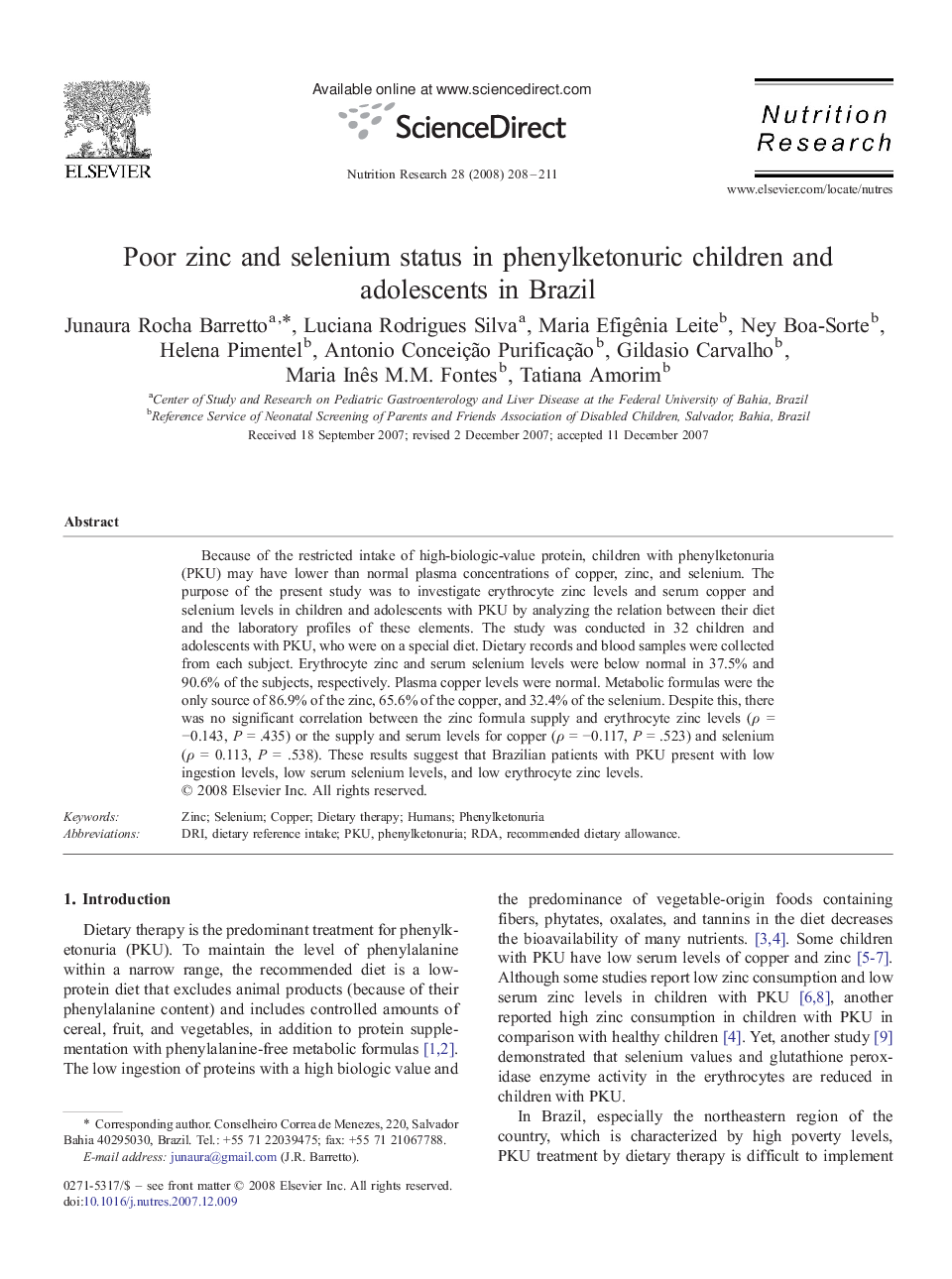| Article ID | Journal | Published Year | Pages | File Type |
|---|---|---|---|---|
| 2809578 | Nutrition Research | 2008 | 4 Pages |
Because of the restricted intake of high-biologic-value protein, children with phenylketonuria (PKU) may have lower than normal plasma concentrations of copper, zinc, and selenium. The purpose of the present study was to investigate erythrocyte zinc levels and serum copper and selenium levels in children and adolescents with PKU by analyzing the relation between their diet and the laboratory profiles of these elements. The study was conducted in 32 children and adolescents with PKU, who were on a special diet. Dietary records and blood samples were collected from each subject. Erythrocyte zinc and serum selenium levels were below normal in 37.5% and 90.6% of the subjects, respectively. Plasma copper levels were normal. Metabolic formulas were the only source of 86.9% of the zinc, 65.6% of the copper, and 32.4% of the selenium. Despite this, there was no significant correlation between the zinc formula supply and erythrocyte zinc levels (ρ = −0.143, P = .435) or the supply and serum levels for copper (ρ = −0.117, P = .523) and selenium (ρ = 0.113, P = .538). These results suggest that Brazilian patients with PKU present with low ingestion levels, low serum selenium levels, and low erythrocyte zinc levels.
